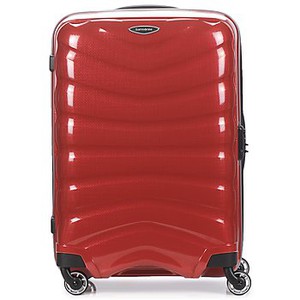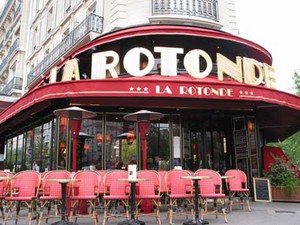Snapshots from Paris: A Changing City
- SUBSCRIBE
- ALREADY SUBSCRIBED?
BECOME A BONJOUR PARIS MEMBER
Gain full access to our collection of over 5,000 articles and bring the City of Light into your life. Just 80 USD per year.
Find out why you should become a member here.
Sign in
Fill in your credentials below.
There are days, weeks, months and years when living in Paris makes me come to a crashing halt and reevaluate so many things I’ve come to accept as status quo. Perhaps that’s one of the reasons I remain here because boredom is equivalent to my being dead, and I’m not ready, merci, quand même.
No matter how comfortable I may be here, nothing stays stagnant or the same same for long. This is invariably true no matter where you are, but it feels more poignant in Paris. Clearly, I view things differently as I change—but why are the new things so much more vibrant in Paris—and it couldn’t be only the Eiffel Tower. It’s as I’m taking a mini Rorschach test and the answers are always dramatically different.
Some observations:
An aging population: There are so many more people walking on the streets using canes than there used to be. Is this imaginary or because people who live in Paris are older? Probably both, and it’s certainly true that families with lots of children tend to gravitate to the suburbs in search of bigger living spaces that cost less than Paris’s apartment stock.
But I wasn’t aware of so many people having to use a wooden or metal aid to walk. A French friend conjectured that many of these seniors previously would have gone to retirement homes. They refuse to now because they don’t want to lose their independence.

Even though Paris isn’t especially handicapped-friendly, people tend to look out for one another. Jeanne, a neighbor who has always lived in the 6eme, feels it’s one of the reasons Paris is special adding that, “To spite Paris being a large city, it’s really a conglomeration of compact neighborhoods, where small stores still exist and the vendeurs are an integral part of people’s lives.” Alternatives still exist here to shopping at an impersonal supersized Walmart, or its equivalent, where you’re essentially anonymous.
Restaurants: Though the economy is less than ideal, why is it that most restaurants are constantly full? They’re not giving meals away nor are they low budget. Is it because that even, with the advent of fast food, the French have enormous respect for cuisine and mealtimes? That’s more than clear when you watch the patrons. They’re generally not in a rush, talk more than they eat and use this time to communicate with one another. Don’t try to intimidate them into vacating a table because you’ll probably be met with stares rather than action.
Travel: On weekends or when there’s a holiday, the French seem to be attached to a carry-on sized lightweight suitcase. They rapidly and skillfully roll on the sidewalk and across streets and, I get the feeling everyone is going some place other than home.
This is a gross exaggeration, but if you happen to be near a train station, you’ll be a believer. If you go inside, you’ll feel guilty you’re not traveling as well. Train travel in France is so efficient that it makes you want to get up and go. And because vacation times are considerably more generous here than in many other countries, people do tend to travel more, if only to their mother’s house. Parisians do travel, but where did they all buy a variation of the same suitcase?

English: The French government has done a first-rate job of getting service personnel to speak English.If you’re in the tourist areas of Paris (that is, pretty much anywhere), don’t be surprised if people answer you in English rather than in French. I was recently put in my place when a waiter instructed me to order dinner in English rather than in my very accented French because he was in a hurry and didn’t have time to be my French teacher. I took this the wrong way, answered with a huffy response but (kinda) didn’t blame him, except that I’m not a tourist and it hurts my feelings, A LOT.
Museums: Why it is that lines at the exhibits at museums here feel as if they go on forever, despite admission not being cheap? Once you get into the museum, you hope you’re able to actually see the show because there are so many people jockeying for viewing space. Clearly, one of the reasons is that Paris is a magnet for people from all over the world. There are an estimated 75 million foreign tourists each year and tourism is a major part of the French economy. On any given Sunday, you’ll find Parisians waiting to be admitted. They are serious culture addicts and really seem to know and appreciate art. Is it because large supermarkets and the department stores are generally closed?
Paris as the City of Light and LOVE: Why is it that couples that are practically having sex while sitting in a café, essentially go unnoticed? Granted, the French are very much live and let live, but the other day, patrons sitting outside at La Rotonde watched two different couples, who chose to sit back to back to the other (perhaps out of modesty), doing things that are usually reserved for the bedroom, or not to be prudish, at the very least a dance floor that’s dimly lit. Even if this was a show where there wasn’t an admission, it was definitely a show that qualified for an X rating. A few tourists noticed but they were in the minority as the waiters glided us. Perhaps this was the first time I’d really noticed because three out of the four participants were wearing jeans that were set so low on their bodies that (more than) a bit of their derrieres were visible. I found myself being surprised these lovers seemed invisible.

Taxi drivers: Taxi drivers are rarely the same type I encountered when I first arrived in Paris. I used to rationalize they were worth the money because they were captive French teachers or LISTENERS. Plus, they’d very often give me mini history lessons and more often than not, I’d emerge from the ride with more insights and intelligence than I’d had before. Now, it’s generally a toss up as to who has a worse accent, the driver or me. On top of that, I generally know more about the quartier than the driver because I’ve quite possibly been in Paris longer. This must be universal because it happens wherever I go.
Since taxi drivers are very often a person’s first impression of a city, it would make great sense for the tourist departments these cities to train them to be their ambassadors. But, that’s another article. For that matter, it’s probably a rant.
I’m the last person who’d say there shouldn’t be changes in Paris because that’s reality. But, why do I feel ambivalent about finding a new Starbucks two blocks from my apartment and is it really progress? Based on the number of people waiting in line for a Frappuccino®, I guess it is.
© Karen Fawcett
Karen Fawcett is President of Paris New Media, LLC
More in English-language, french life, La Rotonde, Museum, Paris taxi drivers, Paris taxis, Paris travel, restaurant, Starbucks, travel




